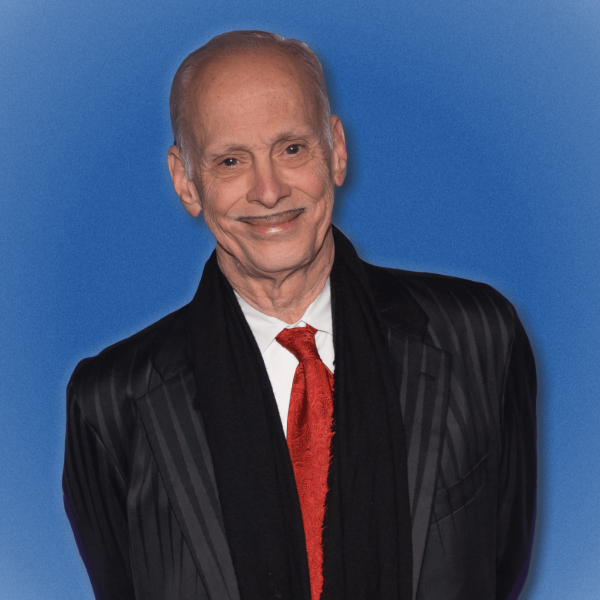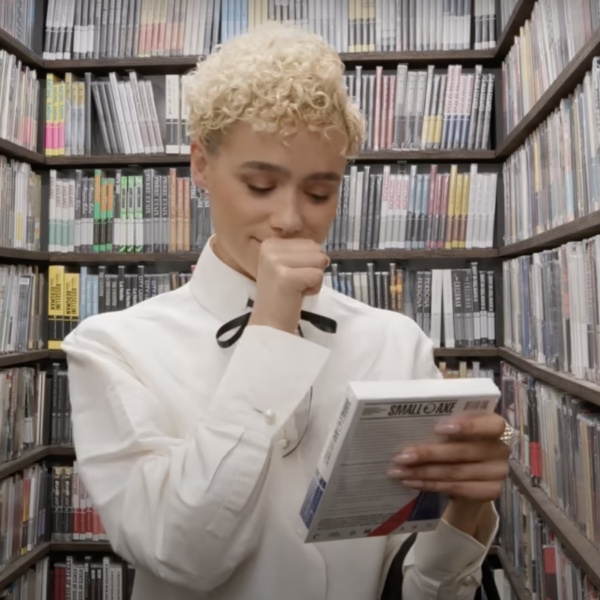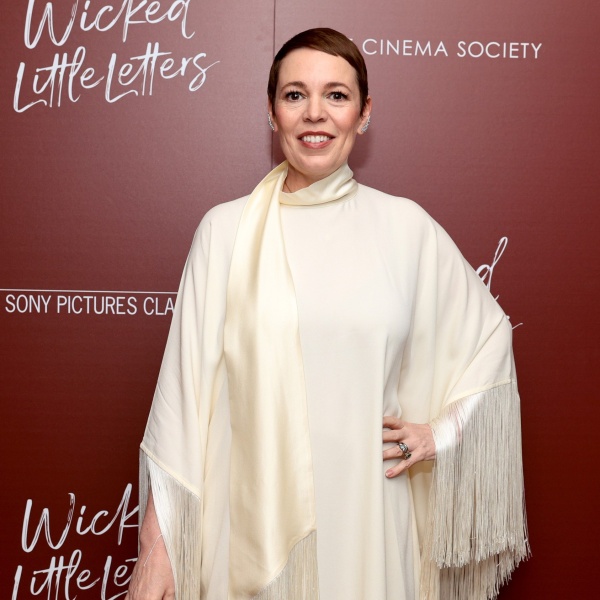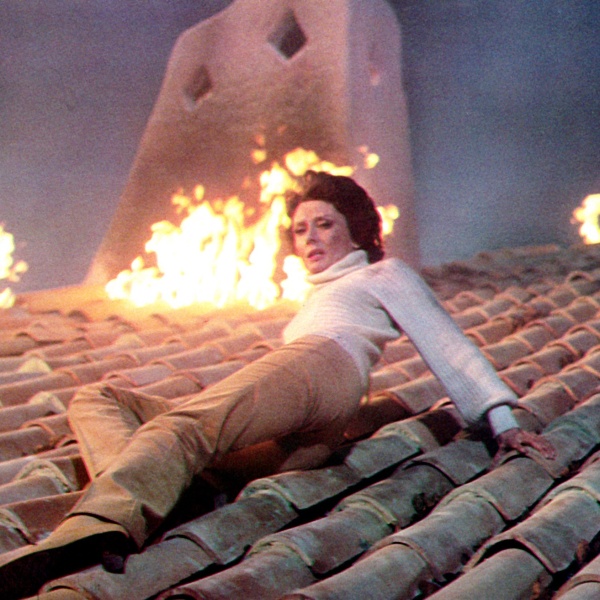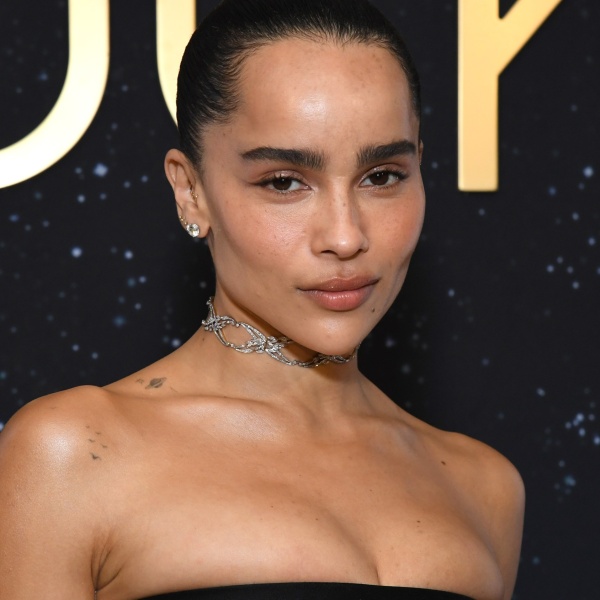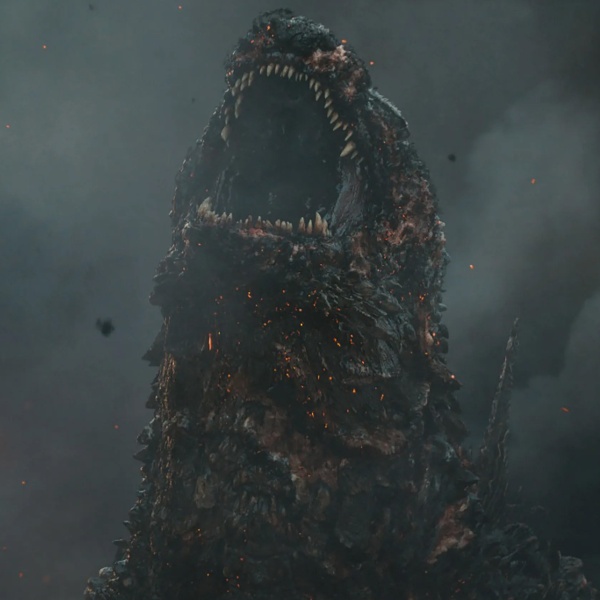Kristen Stewart knows that she doesn’t look her best in ’80s pulp fiction “Love Lies Bleeding,” British filmmaker Rose Glass‘ follow-up to her breakout debut “Saint Maud.” Oscar nominee Stewart (“Spencer”) gives her best performance to date as Lou, who we meet with her gloved hand down a toilet. She’s a shut-down, unhappy lesbian, hungry for something more, who runs a gym and sports a stringy mullet. She comes to life when she falls in love with bodybuilder Jackie (Katy O’Brian). Things take a violent turn as Lou’s past comes back to haunt her. And feeding Jackie steroids to help her win an upcoming contest in Las Vegas may not have been the smartest move.
From the script stage, Stewart saw Lou clearly. “It’s like an adult comic book,” she said on Zoom. “When I think about the characters, I can imagine the line-drawing version of them. Rose posited a lot of identity into this character in subliminal ways. She’s able to visually articulate and insert tonally her taste and her sensibilities, which is a testament to what a great storyteller she is.”
The actress embraced Lou, “this intuitive, authentically written character,” she said, “living in the ’80s, in the middle of nowhere, and able to discover bands that are more alternative. Nowadays, it’s easy to do that. You just go on Instagram. It’s easy to appropriate marginal art, alty aesthetics, and in her case, oh man! She worked so hard to be the person that she’s barely trying to be. And the idea of this impotent girl with a short man’s complex and daddy issues and an inability to communicate, meeting somebody who is more vivacious and more alive than will allow [her] to be so paralyzed — she’s this immovable object that runs into something with so much inertia that she’s dislodged, and is then unable to get away from herself. That was fun and pulpy.”
As she inhabited Lou, Stewart abandoned any sense of trying to be alluring. “I felt a sly, almost in a light, playful way, a snarky tongue-in-cheek indulgence while playing this part, because I know that it’s not necessarily like what people are used to seeing in terms of their protagonists or the people that they’re supposed to identify with or desire, want to be, want to fuck. I just knew that I was playing somebody. My makeup artist, who’s a straight white lady who I love, who’s my sister, was like: ‘You look horrible, like you’ve never looked. I can’t believe you’re not letting me fix it. You look like you’re going to die.’”

But Stewart knew what she was doing. “It feels good,” said Stewart. “I’ve never felt better. It’s funny how those things can go together. There’s a flippant, irresponsible monkey kid under the bleachers aspect to Lou, that adult comic book thing playing into some teenage wish fulfillment that Rose, as a misfit herself, inserted into the movie. ‘Yes, fuck it, just do the wrong thing.’”
While Stewart has played gay roles before, in this film the sex scenes feel unleashed. Some close-ups on her face reveal palpable sexual desire and longing. “I’ve always been somebody who sources my ambition in desire,” she said. “All of my work starts from a place of wanting, and also of wanting people to see that, to see the open mouth, someone that needs something, someone that searching for something…[it’s] exhibitionist-leaning. It feels good to share that feeling with a lot of people. It can be such an alone feeling. ‘Do you see this gaping?’ Wanting to fill that up is what cinema has been for me. And it’s been a processing tool my whole life. It’s been how I come close to people, articulating what those desires are.”
Glass gets the credit for the choreographed sex scenes, said Stewart: “She knew how to capture that. She directed them pretty precisely. We had an intimacy coach.”
Things have changed from the way they used to be, said Stewart: “Back in the day — I’m so happy to be growing away from this — it used to be normal in the script: ‘They start kissing… and then they fall down onto the bed, and they make love.’ And then it would be a free-for-all. ‘How are we going to capture this? Then we’re just going to wing it. It’s your hand, what are we doing?’”
In this case, said Stewart, “the physical conversation that they’re having isn’t the most explicit thing you’ve seen on film. There’s no nudity in the scene [that is] simulated intercourse. It’s more like a power play, and an exchange and a particular physical response to touch and to verbiage that is so exacting that it feels real, but it is not actually very raunchy. It’s just that it’s so detail-oriented, like, the physicality, the orifice, the actual opening of a woman is acknowledged and talked about, and it’s not seen, but it is felt, and it is really fucking satisfying. Because that is so rare.”

O’Brian, who was already in superb shape before she trained for the film, was in the room for a callback with Stewart, who said she couldn’t imagine anyone else in the part. “There wasn’t really anyone else, to be honest with you,” she said. “And it’s not a scarcity conversation. You go, ‘Wow, I don’t know what we would have done without you.’”
Another major character in the movie is Ed Harris, wearing a hideous long ponytail (the actor’s own creation) as Lou’s estranged father, revealed to have been up to no good for decades as the town gangster — and who passed certain skills to his daughter. “A lot of where she comes from,” said Stewart, “is toxicity and internalized shame and violence and misogyny and ways in which she can scare herself. Falling in love with someone and creating this mythology around your connection in order to really believe it: You have to make it real. She’s a person with a life and a history … that is now coming to the surface that’s undeniable. And love doesn’t necessarily always win, it doesn’t save us all. It’s very detrimental at times. It makes you believe in things that don’t exist. And that’s also beautiful. You could say the same things about bodybuilding as you can about self-love, and then through self-love, accepting love from another person and creating a productive relationship. It’s all about believing in things, but none of it exists until you make it up.”
Next up: Stewart debuted another very different film at Sundance, Andrew and Sam Zuchero’s sincere A.I. love story “Love Me,” which met mixed response and still lacks a distributor. A robot buoy (Stewart) and a satellite (Steven Yeun) become sentient over time and create a digital universe. It’s about gender identity, fakery, presentation, and looking for love.
After making a series of shorts, Stewart is finally prepping her first feature film as a director, after years of trying to get it launched. “The Chronology of Water,” her adaptation of novelist Lidia Yuknavitch’s memoir — surprise — covers issues of gender, sexuality, and violence. “She’s one of my favorite fiction writers, but her memoir is such a bulldozer,” said Stewart. “It’s shooting in Europe, which is exciting, because it’s been fucking years. We’re casting and scouting and rehearsing. It’s body-ripping because I’m in 10 places with such a great, full plate I’m facing right now. It is overwhelming.”
Watching Stewart grow is a treat. At 33, she has many more surprises in store.

